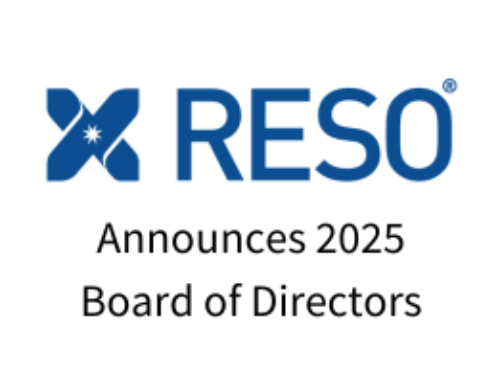Today, it is more important than ever that the real estate industry nurtures and protects its best and brightest staff executives. We need people that are thoughtfully helping the industry navigate the uncertain waters we are swimming in right now.
I have noticed an alarming trend, though, counter to this need. In the past year or so, many progressive Association Executive leaders have been dismissed without cause, advance notice, or well-documented justification. It seems as though as the market has gotten tougher the number of firings has increased.
This alarming trend made me think about a few things that may be lacking in training and governance orchestration we may want to consider.
You’re Invited!
We are hosting a live webinar on this topic on August 27th, 2024.
How do we legislate a dispute or difference of opinion?
If there is a dispute or disagreement between two REALTORS®, there are several options to challenge decisions via either mediation or arbitration. If there is a dispute or misunderstanding between an Association Executive and their leadership team, the AE has no recourse. They can be fired at will without any kind of review or peer discussion about the validity of the reason for disagreement or dismissal.
Peer Review Panel
When REALTORS® are faced with conflicts and disagreements about transactions, they are given the option to be reviewed by a panel of their peers that make an objective call about the appropriate outcome of a dispute. Association Executives have no such option. The industry may want to think about creating a panel balanced with well-trained volunteer leaders and fellow or former Association Executives to review the issues being outlined and make a recommendation. Even if the recommendation is non-binding, it allows the topic to be discussed by those not so emotionally involved in the outcome and provides a more in-depth analysis to inform the ultimate decision.
Documentation/Employee Improvement Plans

As an executive recruiter I hear often from AE’s that they have no forewarning and are simply fired with words like “we’re heading in a different direction.” I also hear even more alarming dismissal stories like one from an AE where their president told them “I didn’t think you liked me” and another that said, “you are not providing me with enough respect”. One AE received a text message firing them without any reason at all. While there may be more to the story than what I hear, the fact is that the rationale for dismissals are not as well-documented as they could be.
In for profit corporations, dismissal usually follows one or several discussions outlining areas of weakness, failure to accomplish strategic objectives or financial mismanagement. Many companies implement a written Performance Improvement Plan. While there are two sides to every story before dismissal, it is smart for Associations to document shortcomings to protect themselves legally. Personality conflicts are NOT a good reason for dismissal, but too often they seem to be at the center of the problem these days.
Well-Defined Performance Objectives based on Effective Strategic Planning
Few Associations have written performance objectives with quantitative measurements. An Association first needs a strategic plan that outlines specific strategies and tactics and quantified strategic objectives and performance benchmarks or key performance indicators (KPI’s)
Strategic goals like “we want to serve the best interests of REALTORS®” is not specific enough and actionable enough. There is no way to truly measure whether the AE is helping to achieve goals that are too “squishy.”. Strategic Plans need to quantify the goals and provide specific initiatives and measurements to monitor progress.
Ideally, the volunteer executive leadership team is working with the AE to build quantitative goals, timelines and action plans which can be turned into quarterly performance objectives. With well-defined priorities it is much easier to provide proactive performance feedback. Quarterly performance goals can also make it much easier to quantify and justify bonus awards and annual compensation increases.
Clear Understanding of Roles
Volunteers and CEO’s/AE’s must clearly understand their respective roles in partnership with each other. I’ve seen trouble erupt when an AE thinks the Association is “theirs” and the volunteer opinion does not matter. I have also seen Association dysfunction when a Board member or Board president thinks they are “in charge’ of the company and do not live to the defines roles and responsibilities of the Association Executive outlined in the by-laws. For example, recently I saw a board of directors take charge of the hiring process of an employee instead of letting the Association Executive manage the process as dictated by the Association’s by-laws.
I have also seen situations where the decision to discuss an Association Executive was designated to a Board of Directors decision, but the Board President or Executive Committee drive a dismissal without gaining full board buy-in.
Volunteer Training on Performance Review Process
Many volunteers have never managed people or have never had a senior executive reporting to them. They have not been properly trained in human resource management and coaching techniques. They are not comfortable having tough conversations sometimes needed when an Association Executive is not driving the effective achievement of the company’s strategic plan. Many volunteers have never managed a P and L or complicated budgeting process and have no idea how to evaluate the financial health of the organization or interpret a balance sheet. Still others do not understand their role in directing the investment strategies of an organization and then empowering the AE to manage the execution. To be effective at managing a senior executive. volunteer training needs to includes learning how to effectively manage and motivate paid executives.
The CEO evaluation process should, at a minimum include the following:
- Written, mutually agreed to annual and quarterly goals based on the quantitative goals and KPI’s of the company’s strategic plan
- Quarterly progress reviews and financial updates with Executive Committee and CEO/AE
- Definition and mutual agreement to key metrics used to measure success of organization and quarterly reviews of progress against those metrics
- Candid discussion about where the CEO is excelling and what areas they need to improve
In this tough time where the relevance and validity of being a REALTOR® is being threatened from lawsuits and government regulation, it is more important than ever that Associations become the professionally run organizations they need to be.
If you need help reviewing your governance, gathering input on the perceived effectiveness of your leadership team or staff, updating by-laws or roles and responsibilities or need a third party to help you through a rough patch in executive management we’re here to help. Feel free to reach out to me at marilyn@wavgroup.com.
You’re Invited!
We are hosting a live webinar on this topic on August 27th, 2024.




